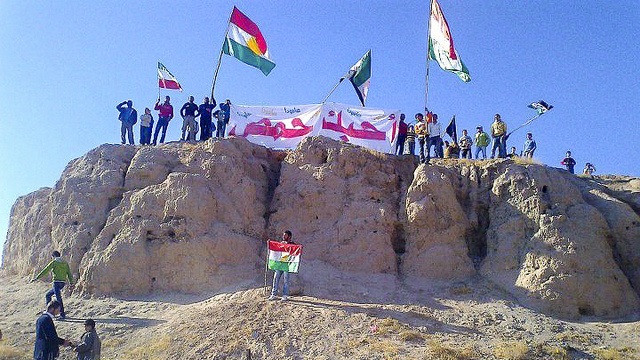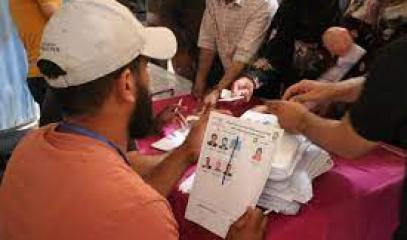Elections in Syria’s north-eastern Kurdish region postponed after Turkish threats, US doubts
The vote was initially scheduled for 11 June. The Election Commission has delayed it "at least until August" but without any official confirmation. Critics accuse Kurdish groups of separatism and seeking to monopolise power.
Damascus (AsiaNews) – Syrian Kurdish authorities have postponed controversial local elections in the north-eastern region of the country under their control, following threats from their Turkish enemy and doubts from their American ally.
Initially scheduled for 11 June, the vote was postponed “at least to August”, but no timetable has been set. Had the election taken place, it would have involved all seven districts in the semi-autonomous region, with an electorate of about six million.
The large region is inhabited by Kurds and Arabs (not always in harmony), and emerged out of the fragmentation of the Syrian state during the civil war between rebel groups, often led by Jihadis, and Syrian President Bashar al-Assad.
Local Christians are also doubtful about the vote, especially since they have been the victims of sectarian abuses and attacks.
The election commission said it had delayed the vote "in response to requests from political parties and alliances" after they complained that they did not get enough time to organise for the campaign.
Local officials and candidates insist that the vote is crucial for local representation, which will contribute substantially to improving public services in the Autonomous Administration in North and East Syria (AANES).
However, detractors accuse the commission and Kurdish movements of separatism and seeking to monopolise power, while expressing fear that conditions for free and fair elections are non-existent in Kurdish-controlled northeast Syria.
Saleh Muslim, co-president of the Democratic Union Party (PYD), told AFP that about 18 parties are set to take part in the vote, including the Democratic Union and Independents.
The Kurdish leader added that the elections were delayed for "internal" reasons, adding that the commission took "political circumstances into account.”
Syrian Kurds, who have suffered marginalisation and oppression for decades at the hands of the ruling Baath Party, rule about a quarter of the country, including Arab-majority areas, after the withdrawal of government forces and pro-Assad groups.
The armed wing of the PYD, the powerful People's Protection Units (YPG), dominates the Syrian Democratic Forces, the de facto army that controls the region. In the past, Kurdish-majority forces have led the fight to oust the Islamic State, thanks in part to military and logistical help provided by the United States.
However, for the Kurds, Turkey is the main "enemy”. Ankara considers both the PYD and the YPG as offshoots of the outlawed Kurdistan Workers' Party, which the government of President Recep Tayyip Erdogan deems a terrorist organisation.
Turkey also controls two border regions in the north and considers the upcoming elections as evidence of separatism.
Since 2016, the Turkish military has conducted a series of ground operations to expel Kurdish forces from northern Syria's border areas, and Erdogan himself has threatened to launch a new operation to prevent the vote.
Turkish state television TRT yesterday welcomed the decision to delay the vote, adding that Ankara's position "has borne fruit".
Elections have also drawn the ire of the Kurds’ main supporter and ally, Washington, which considers Turkey a key member of the Atlantic Alliance (NATO).
“Any elections that occur in Syria should be free, fair, transparent, and inclusive," said US State Department spokesman Vedant Patel in a statement last week. "We don't think that the conditions for such elections are in place in NE Syria.” In view of this, the US urged local authorities "not to proceed with elections," he added.
Finally, many local Christians have serious doubts about the vote, and would probably not recognise its legitimacy and status.
Christians still remember past abuses and violations, starting with the seizure of homes and land as well as the destruction of churches and holidays celebrated under threat from local and foreign powers.








.png)










